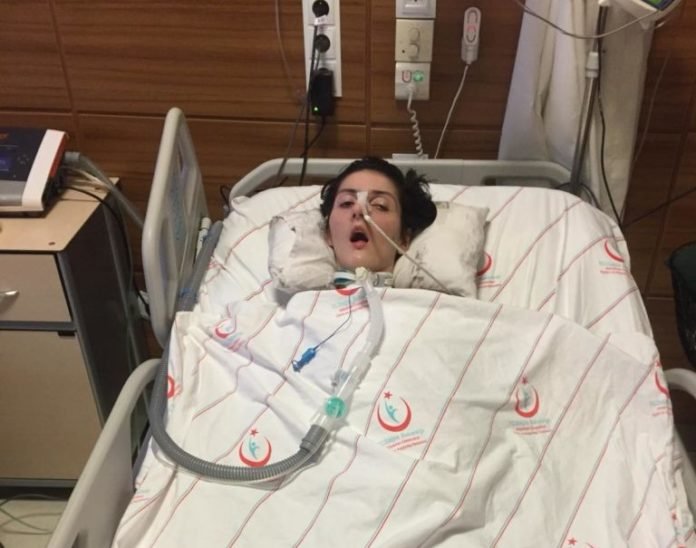Sevdegül Güler, a bedridden woman whose mother was denied a care allowance by Turkey’s Ministry of Family and Social Policies due to her alleged affiliation with the Gülen Movement, died on Monday.
Güler contracted subacute sclerosing panencephalitis – SSPE, also known as Dawson disease — a rarely seen chronic neurological disorder characterized by inflammation of the brain, after having complications with the measles when she was 8 years old. She was almost totally disabled and was confined to bed. In a previous interview with Boldmedya her mother had said: “My daughter has lost most of her senses. She cannot see, hear, walk or eat.”
Sevdegül’s parents, Ümmühan and Mehmet Güler, were both public school teachers. They were summarily dismissed from their jobs by emergency decrees in the aftermath of a July 15, 2016 coup attempt in Turkey for alleged affiliation with the Gülen movement, a faith-based group inspired by US-based cleric Fethullah Gülen,
The Turkish government accuses the movement of masterminding the abortive putsch and labels it a terrorist organization. The movement strongly denies involvement in the coup attempt or any terrorist activity. Following the allegations, Gülen called on the Turkish government to allow for an international investigation.
Sevdegül’s father Mehmet was later arrested for “membership in a terrorist organization” due to his alleged ties to the Gülen movement. He has been in prison for the past three-and-a-half years. After her husband’s arrest Ümmühan Güler had to take care of her daughter alone. The Turkish government denied her a care allowance since she was a purged public servant. She had to both work and take care of her three children, including Sevdegül.
Following the failed coup, the Turkish government declared a state of emergency and fired more than 150,000 public servants from various institutions using emergency decree-laws. The purge mainly targeted people who were allegedly affiliated with the Gülen movement but included other people from a wide variety of backgrounds as well. Those who were purged are not even able to find employment under formal contracts in private sector companies that fear government reprisal because the authorities inserted notices into the social security database about purged public servants. This has sparked criticism that they have been condemned to a civilian death.
There have been numerous instances when government institutions did not provide social security benefits to purge victims and alleged members of the Gülen movement. In a similar case, financial assistance paid by the Turkish government to the family of Nurbanu Aydın, a 29-year-old spastic quadriplegia cerebral palsy patient, was cut off after her father, Muammer Aydın, was arrested on trumped-up terrorism charges.
Sevdegül’s condition deteriorated in November, and she was admitted to Adıyaman State Hospital. She was discharged after two weeks. Her mother converted a room in their house to serve as an “intensive care unit,” and Sevdegül continued to live attached to three different machines.
Ümmühan Güler could not stay with her daughter because she had to work in a novelties shop. At the time she had said: “I was left as a single parent. I had to work to sustain all of us. I would hurry back home from work, change my daughter’s diaper, feed her and rush back to work.” Yet, without her husband she wasn’t able to take care of her daughter the way she deserved. “In the past I was able to attend to Sevdegül. I used to talk with her, caress her, spend time with her and help her with her exercises.”
Sevdegül Güler’s funeral took place on the afternoon of August 24. Her father could not attend the services because he was still in prison.















